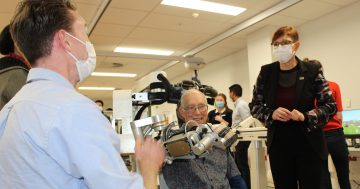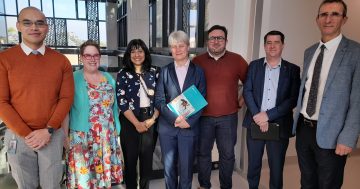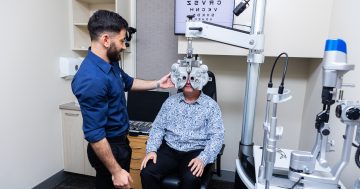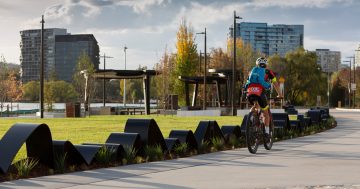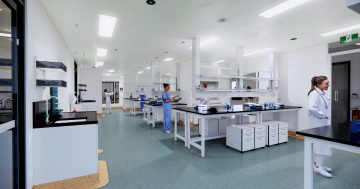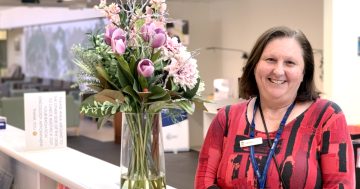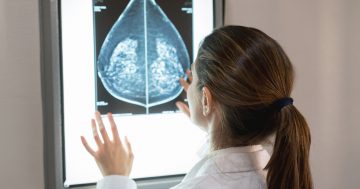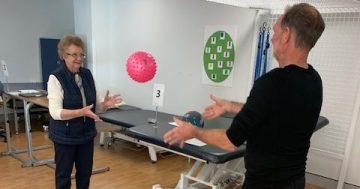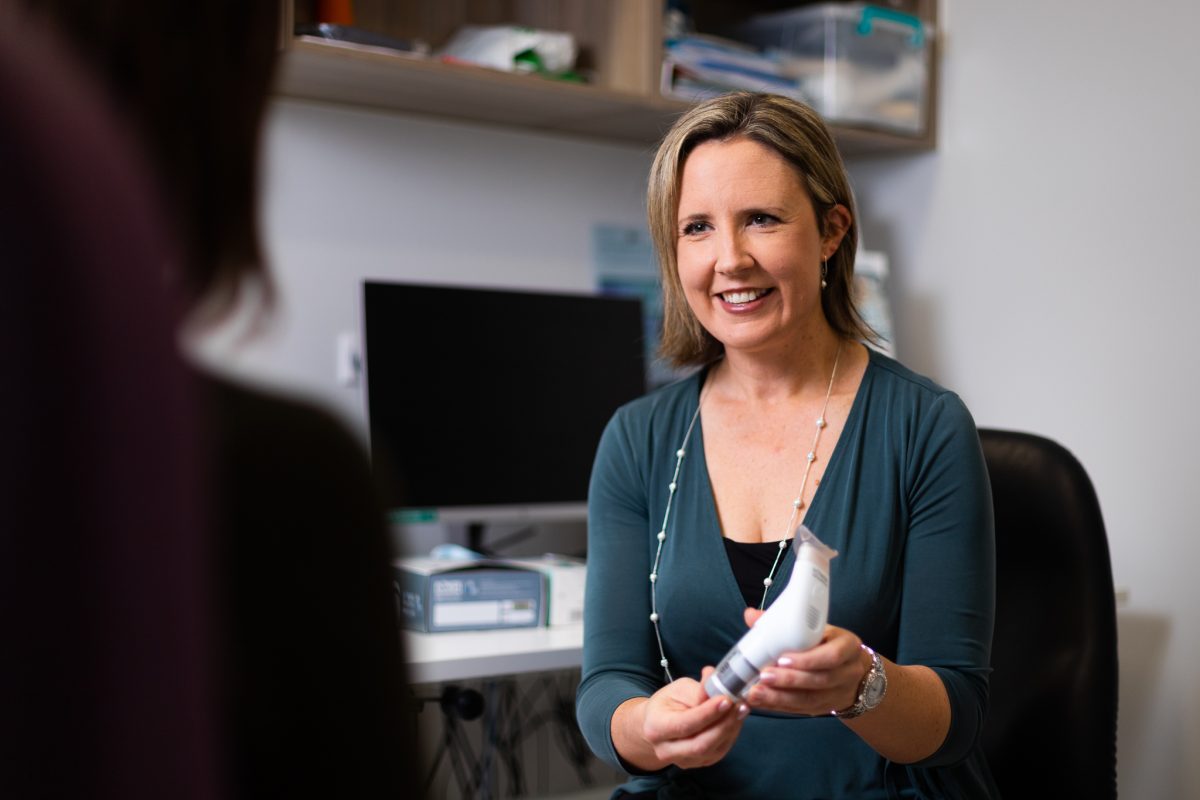
University of Canberra associate professor and physiotherapist Dr Bernie Bissett says ACT-based clinical health research can continue to have a global impact. Photo: Supplied.
Dr Bernie Bissett is one of the Canberrans leading a global charge in clinical health research – all from within the ACT’s landlocked borders.
“We’re very small fish in the government research funding pond,” the University of Canberra (UC) associate professor admits.
“Despite that, we’ve still been able to really improve patients’ lives, not just locally, but around the world.”
Dr Bissett’s keynote address at the annual meeting of health minds this July, the Canberra Health Annual Research Meeting, covered this very topic.
A physiotherapist by trade and Canberran by birth, Dr Bissett began her career almost 20 years ago at Canberra Hospital, where she specialised in intensive care.
“I just fell in love with working with these incredibly vulnerable people, where we could make such a difference in terms of their recovery,” she recalls.
“So I feel like research chose me, I didn’t choose research, because it got to the point where I was really questioning, ‘Can’t we do more?'”
Since then, Dr Bissett has been researching how to help patients using ventilators build strength in their breathing muscles so they don’t have to rely on the machines.
“There reaches a point where the original disease is kind of under control, but they’re still incredibly weak because the machine’s been breathing for them,” she says.
“It’s been such a joy to see how the work that we’ve done here in Canberra over the last 15 years is now literally changing practice around the world.”
A 2021 global survey of ICU physiotherapists found these locally pioneered and trialled techniques are now used by 63 per cent of those surveyed.
Dr Bissett says this is just one example of how the ACT “punches above our weight” in clinical health research on the global stage. Others include:
Research into lymphoedema (swollen arms or legs) management
She says Dr Elizabeth Webb, when working as a physiotherapist at the then Calvary Hospital, caring for people with lymphoedema (swelling in arms or legs) realised: “there was a complete lack of evidence about whether tightly bandaging those legs would actually help to reduce the swelling and make them less likely to get infections and land them in hospital”.
Dr Webb’s trial in Canberra with a control group which received the usual care and a second group which received an alternative treatment showed startling results.
“The effect was so strong for the people that got [her] treatment, they had to stop the trial early to make sure everybody could get this treatment,” Dr Bissett says.
The study was published in the prestigious New England Journal of Medicine, and Dr Webb has been presenting her work around the world.
Research into long COVID
“What people may not know about long COVID is about 20 per cent of people have real issues with their balance, so nobody in the world has really looked at measuring why,” Dr Bissett explains.
She says research involving 217 long COVID patients who have come through the UC Hospital Long COVID Clinic’s doors have started to produce some positive results.
She says the secret to success in projects such as these is collaboration between clinicians, academics and patients, a dash of dreaming big and dedicated funding from the Federal Government.
Dr Bissett and her team are now asking for more funding for the COVID clinic to “literally write the playbook about how to improve recovery for these patients”.
But she says these types of clinical research projects typically don’t receive as much Federal Government money from the National Health and Medical Research Council as lab research projects. “With very little funding, we’ve achieved these extraordinary results, however there is a wealth of health data that we could do so much more with if we had more funding,” she says.
“We need to see a change of priorities nationally about what we fund from a health research perspective if we’re going to genuinely change the quality of patient care.”












